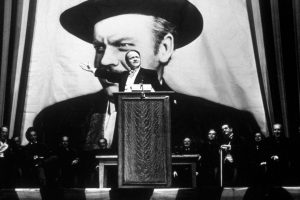They work hard, very hard. Often they got two or even three jobs at the same time in order to support their families and send money to their relatives in their native country. And they are brave too; not everybody dares to leave her/his hometown and travel thousands of miles and reset her/his live in order to get better opportunities. Also they must be good parents and share with their kids as much quality time as possible. An of course, frequently comes the issue of “look at the neighbors new car” or maybe a little jealousy about their brand new Grill X-9000. You know, the usual pursuit of the famous American Dream.
In addition to all that, we expect Latinos to get involve in politics. Even if for many of them, judging from their previous experience in their country of origin, it is just a little more than hot air and a pipe dream.
The old book says that in the U.S.A. democracy rules. And it is built by votes. One person one vote, sounds easy. Political power is proportional to the number of votes. Therefore, voting in greater numbers means greater political power. Thus, if soon enough Latinos will become one third of the nation, they will finally arrive to the Promised Land, right? Well, no. Not really.
The fact is that Latinos already represent an extremely valuable segment of the electoral force. In a Presidential election we could say that in a normal scenario and unless a Republican candidate is able to get at least 40% of the Latino vote, his opponent has the wining hand.
That is good but barely enough. Latinos are and will be a minority in most places. And even where they are many –like in some big cities, the South West and South Border region–, they don’t have the numbers that will allow them to win many elections by themselves.
We could discuss the age factor (they are much younger than the rest), the undocumented factor (between 6 and 7 million are not citizens therefore are not allowed to vote) or the cultural factor (voting is an acquired taste and Latinos, the new ones at the table, have not relished it), but in practical terms, the fundamental point here is that their vote already matters nevertheless is not enough to conquer the power.
Here is where the art of building alliances, compromises and partnerships are essential. The magic word is teamwork, a very familiar one among Latinos.
The story of the soccer field in Passaic, New Jersey teaches us all a great lesson in the subtle art of politics. (Please read in this edition). In order to move their agenda forward, Mexicans and Dominicans communities joined the small but very influential Orthodox Jew community in an alliance that could put themselves in the path of getting concrete benefits that in time will move them to the voting polls and consequently grow their political muscle.
Something similar happened some years ago in the Museo del Barrio in Hispanic Harlem where demography transformed a Puerto Rican neighborhood into a Mexican one and the emblematic institution could adapt to the needs of both communities.
Mexicans in the U.S. have a lot of problems. There are many possible causes. But the basic point is that as it happened with other immigrant communities before them, Mexicans have earned a place for themselves at the American table. They have the numbers and they are very good team players.
Looking at the experience of how some issues, like gender equality rights, gay rights and personal freedom rights, have move forward in the recent years, it is more than clear that Latinos have a lot to win building alliances with other group (defined by ethnicity, region or by issue). In this context the immigrant integration agenda may be a first step toward a most dynamic path where Latinos will learn how to use the political system in favor of their own community. Like in Passaic, N.J. where all started with a soccer field.
February 2015










